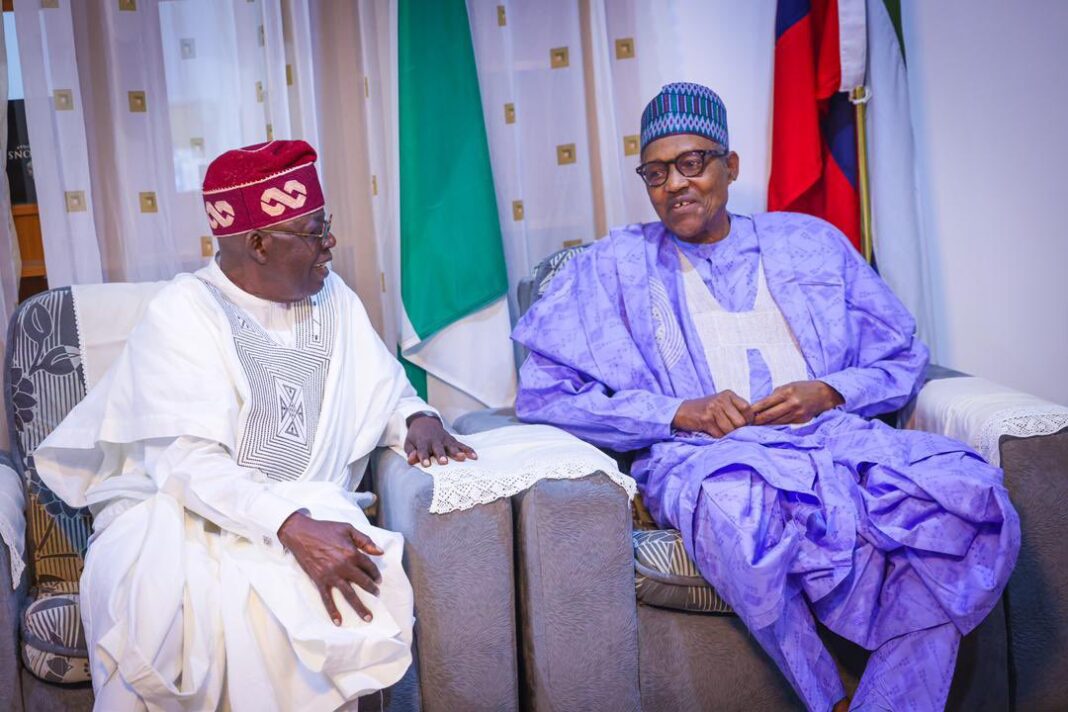Amid speculation in Northern political circles about a possible resurgence of former President Muhammadu Buhari and his loyalists to challenge President Bola Ahmed Tinubu’s re-election bid in 2027, a closer examination reveals a different reality. Buhari’s diminished political influence, coupled with his controversial legacy, raises questions about his ability to significantly impact the next election cycle.
Buhari’s presidency, which spanned from 2015 to 2023, saw a gradual erosion of his credibility and political alliances. His tenure was marked by economic downturns, policy missteps, and worsening insecurity—factors that alienated key figures who once propelled him to power. The widespread disillusionment, particularly among his northern support base, further weakens any potential comeback strategy.


Under his leadership, Nigeria experienced economic instability, including two major recessions, rising inflation, and a currency crisis exacerbated by the controversial naira redesign policy. The economic hardship that followed, particularly in the North, led to growing resentment even among his staunchest supporters. Insecurity also spiraled, with banditry, kidnappings, and terrorism becoming widespread, displacing communities and crippling local economies.
Politically, Buhari’s tenure was marked by strategic miscalculations. His failure to reward loyalists, including key figures such as President Tinubu, weakened his support structure. Before the formation of the All Progressives Congress (APC), Buhari’s political influence was largely regional, and his three previous presidential bids ended in defeat due to a lack of a broad national coalition. It was the 2013 merger—engineered with significant input from Tinubu—that provided the platform for Buhari’s eventual victory in 2015.
However, rather than consolidating these alliances post-victory, Buhari distanced himself from the very strategists who secured his presidency. This misstep alienated political heavyweights and contributed to his declining influence. Many of those who stood by him in 2015 withdrew their support, recognizing that his presidency lacked the vision and dynamism needed for sustained leadership.
A closer look at Buhari’s political inner circle reveals a pattern of repeated electoral failures. The same individuals who surrounded him during his unsuccessful campaigns in 2003, 2007, and 2011 remain in his fold today. Without external political intervention, Buhari struggled to build a viable national electoral strategy. The notion that these same individuals can now mount a formidable challenge against Tinubu—an incumbent with significant political control—is detached from reality.


President Tinubu, on the other hand, has spent decades mastering political organization, coalition-building, and strategic governance. He has solidified his control over the APC, ensuring party loyalty through a well-structured support system. Unlike Buhari, who relied on external alliances for electoral success, Tinubu has demonstrated political acumen and adaptability, positioning himself as a dominant force heading into 2027.
The argument that Buhari’s loyalists could derail Tinubu’s re-election bid is therefore unfounded. Buhari’s credibility has suffered irreparable damage due to economic hardship and security failures under his leadership. He has never been known for strategic political maneuvering, and his past victories were largely orchestrated by others rather than being a result of his own tactical expertise.
Moreover, many of Buhari’s former allies have distanced themselves from him, acknowledging his declining relevance in the political landscape. With no substantial power base, no strategic political machinery, and a fractured support network, Buhari lacks the capacity to pose a serious challenge to Tinubu or any other major political figure in 2027.
However, a segment of the population, particularly among the grassroots in the North, still views Buhari as a revered leader. Some supporters believe that the current economic difficulties under Tinubu’s administration surpass those of Buhari’s tenure, fostering a sense of nostalgia and partial forgiveness for his leadership failures. His status as the only living former president from the North West and a respected figure in the caliphate structure ensures that he remains a symbolic voice, even if not a politically active force.

As the 2027 elections approach, the real challenge for Tinubu is unlikely to come from Buhari’s camp but rather from a more organized and nationally viable opposition. Buhari’s future influence, if any, will depend on whether his loyalists can align with a stronger political force. Until then, his political standing remains uncertain, and his ability to shape Nigeria’s next electoral cycle remains highly questionable.
Ultimately, the 2027 elections will serve as a critical test of Buhari’s enduring relevance and the strength of Tinubu’s political machinery. Whether Buhari can still command influence or has faded into political obscurity will be determined by the unfolding political dynamics in the years ahead.
Dr. G. A. Fraser. MFR
The National Patriots.
Headlinenews.news





